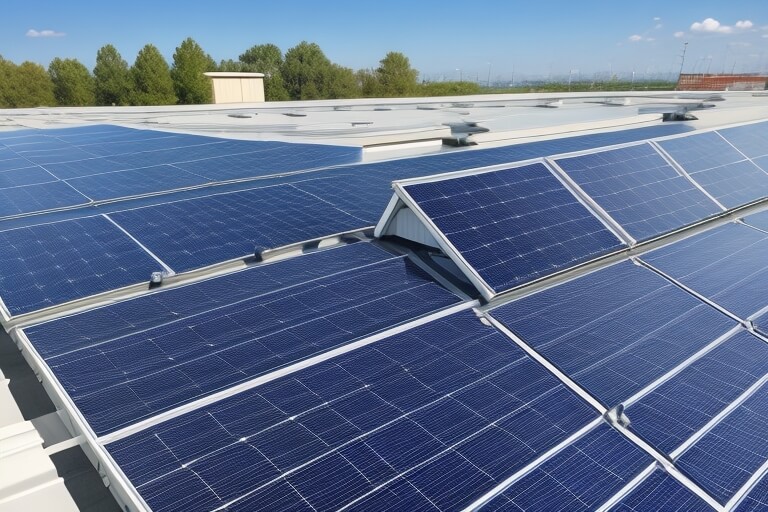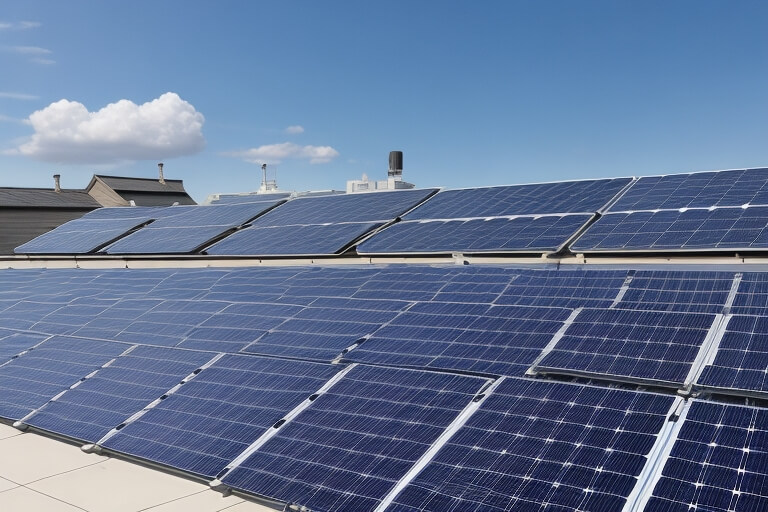One of the primary distinctions between solar energy and fossil fuels is their environmental footprint. Solar energy stands out as a clear winner in this category. Photovoltaic (PV) solar panels generate electricity without emitting greenhouse gases, making them a clean and sustainable energy source. When sunlight hits the solar panels, it triggers a process that converts solar energy into electricity without any direct emissions. This is in stark contrast to fossil fuels, which release a substantial amount of carbon dioxide (CO2) and other pollutants when burned for energy.
 Fossil fuels, including coal, oil, and natural gas, have been the backbone of global energy production for decades. However, their combustion not only releases significant amounts of CO2, a major contributor to climate change, but also produces other pollutants like sulfur dioxide, nitrogen oxides, and particulate matter. These pollutants have detrimental effects on air quality and public health, contributing to problems such as respiratory illnesses and smog formation in urban areas. The consequential environmental damage extends to ecosystems, as oil spills, coal mining accidents, and deforestation associated with fossil fuel extraction have left long-lasting effects on the planet.
Fossil fuels, including coal, oil, and natural gas, have been the backbone of global energy production for decades. However, their combustion not only releases significant amounts of CO2, a major contributor to climate change, but also produces other pollutants like sulfur dioxide, nitrogen oxides, and particulate matter. These pollutants have detrimental effects on air quality and public health, contributing to problems such as respiratory illnesses and smog formation in urban areas. The consequential environmental damage extends to ecosystems, as oil spills, coal mining accidents, and deforestation associated with fossil fuel extraction have left long-lasting effects on the planet.
The extraction and transportation of fossil fuels further exacerbate their environmental impact. Oil spills from offshore drilling operations can devastate marine ecosystems, harming wildlife and affecting coastal communities. Similarly, coal mining has caused irreparable damage to landscapes and water sources, leading to habitat destruction and water pollution.
The production of solar panels, while not entirely without environmental impact, is considerably less damaging. The mining of raw materials, such as silicon and aluminum, and the manufacturing of solar cells do require energy and resources. However, the environmental costs of solar panel production are often outweighed by the benefits of emissions-free electricity generation during the operational phase.
Resource Availability
The sustainability of an energy source is intrinsically linked to the availability and longevity of its resources. Fossil fuels are finite resources, a reality that poses significant challenges to their continued use. Over the years, we have depleted easily accessible reserves of oil, coal, and natural gas, leading to a situation where the extraction of these fuels has become increasingly challenging, expensive, and environmentally destructive. This scarcity often fuels geopolitical conflicts over fossil fuel reserves, and it contributes to price fluctuations in the energy market, making energy security a pertinent issue.
Oil reserves, for instance, are concentrated in specific regions of the world, leading to geopolitical tensions and competition for control of these resources. Such conflicts have had far-reaching consequences, including armed conflicts, economic instability, and a heavy reliance on oil-producing nations.
The finite nature of fossil fuel reserves has economic repercussions. As these resources become scarcer, the costs of extraction and production tend to rise. This, in turn, can lead to higher energy prices for consumers and businesses, impacting the overall economy. The volatile nature of fossil fuel prices can make long-term energy planning and budgeting for both individuals and governments challenging.
Solar energy relies on an infinite resource: sunlight. The sun shines across the globe every day, providing an enormous and reliable source of energy. While the efficiency of solar panels varies based on geographic location and climate, technological advancements are consistently improving the utilization of this boundless energy source.
The availability of sunlight is not restricted by geopolitical boundaries, reducing the risk of conflicts over resources. Harnessing solar energy can promote energy independence by reducing reliance on imported fossil fuels, enhancing national and regional security.
It’s important to note that, while solar energy is sustainable and widely available, its efficiency may vary depending on location. Areas with abundant sunlight, such as deserts and equatorial regions, are particularly well-suited for solar energy production. Advancements in solar technology, such as concentrated solar power and improved energy storage systems, are making solar energy increasingly viable in regions with less sunlight.
Economic Considerations
Economics plays a significant role in the ongoing debate between solar energy and fossil fuels. Traditionally, fossil fuels have dominated the energy market due to their affordability and well-established infrastructure. The economic landscape of energy production is undergoing a transformation as the world recognizes the need for sustainability and environmental responsibility.
Fossil fuels have historically been considered the cheapest energy source, primarily due to the ease of extraction and established supply chains. This perception is changing. Solar energy, once viewed as cost-prohibitive, has experienced a remarkable reduction in the cost of solar panels and installation over the past decade. This price decline is attributed to increased manufacturing efficiency, economies of scale, and fierce competition in the solar industry.
 Governments and policymakers worldwide have recognized the importance of promoting renewable energy adoption. To encourage the shift to sustainable sources, various incentives, subsidies, and tax credits have been put in place to make solar energy more financially attractive. These initiatives have helped level the economic playing field, making solar power an appealing option for both homeowners and businesses.
Governments and policymakers worldwide have recognized the importance of promoting renewable energy adoption. To encourage the shift to sustainable sources, various incentives, subsidies, and tax credits have been put in place to make solar energy more financially attractive. These initiatives have helped level the economic playing field, making solar power an appealing option for both homeowners and businesses.
The economics of fossil fuels face increasing uncertainty. The prices of these finite resources are influenced by geopolitical tensions, supply and demand fluctuations, and the high costs associated with exploring and extracting reserves in remote and challenging locations. The volatility of oil prices, for example, can have widespread economic repercussions, affecting industries ranging from transportation to manufacturing and agriculture.
It’s important to consider the external costs associated with fossil fuels. These include healthcare expenses related to air pollution and environmental damage caused by their extraction and transportation. While these costs are not always factored into the price of fossil fuels, they are significant and often overlooked. For instance, the healthcare costs associated with air pollution from burning fossil fuels are substantial, impacting individuals, communities, and healthcare systems. The environmental damage caused by oil spills, coal mining accidents, and habitat destruction also carries significant economic implications, often resulting in expensive cleanup and restoration efforts.
Energy Storage and Reliability
One key challenge in the transition to sustainable energy sources is the intermittent nature of renewable energy, including solar power. The sun does not always shine, and energy production from solar panels is dependent on weather conditions and daylight hours. Fossil fuels, in contrast, offer a consistent and reliable energy source.
To address this issue, substantial investments have been made in energy storage technologies, such as advanced batteries. These innovations are closing the reliability gap between fossil fuels and solar energy. Battery technology is advancing rapidly, making it possible to store excess energy generated during sunny days and use it during periods of low sunlight. This development is a critical step toward ensuring the reliability of solar energy in meeting our energy demands.

